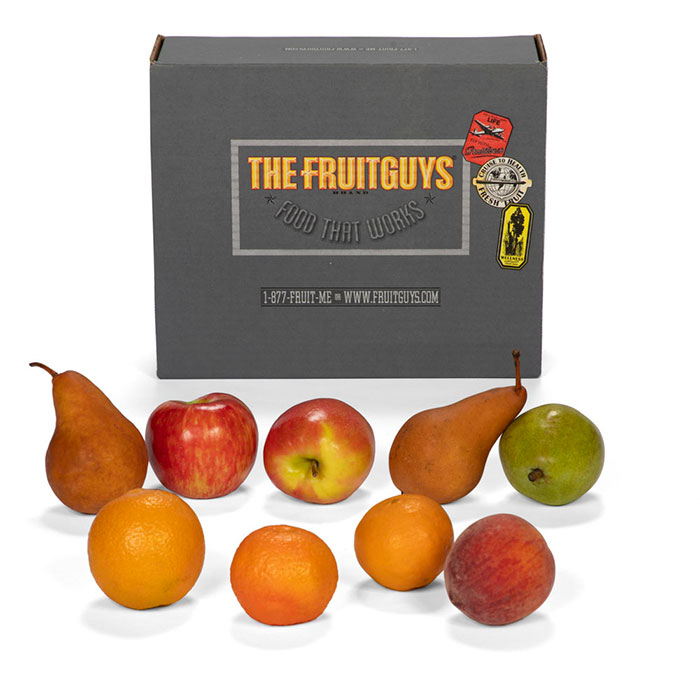Holiday Fruit Traditions from Around the World
- By Elisabeth Flynn
- Last Updated On
- Reading Time: 5 mins.
Have you ever wondered why holiday fruit gift baskets are so popular? It turns out this gifting tradition has deep roots. During the holiday season, fruits take on symbolic significance in rituals and celebrations around the world. Some fruit traditions have evolved or been adapted across cultures and distances, while others remain highly local. Here are a few of our favorite holiday fruit traditions worldwide. Learning more about them may add a little extra flavor and fun to your own festivities.
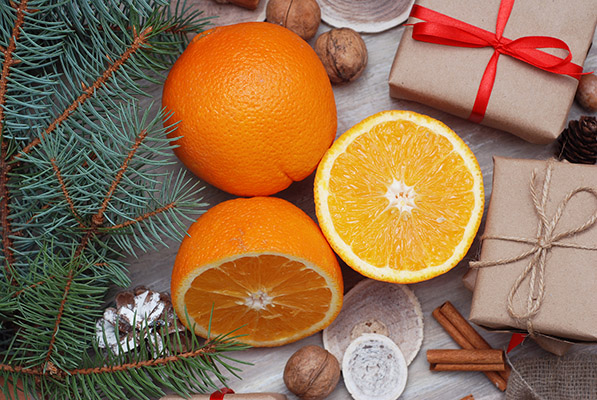
Greece and Beyond: Christmas Oranges from St. Nicholas
Oranges have long been a staple in Christmas stockings, and the custom may have been inspired by the legend of St. Nicholas—the original Santa Claus. The real St. Nicholas was a fourth-century Greek bishop known for his generosity. Legend has it he learned of a poor old man with three daughters who were unable to marry because they lacked dowries. One night St. Nicholas tossed three bags of gold through their window to help with their financial trouble, and the coins landed in stockings that were hanging near the fireplace to dry.
Over time, the tradition of placing oranges in Christmas stockings to represent the gold coins took hold. Oranges were a luxury item in many parts of the world, making them a fitting symbol of wealth and generosity. Here in the U.S., gifting oranges and other fresh fruits became popular during the Great Depression, a time when candies, nuts, and fresh fruit were considered rare treats.
Italy: The Christmas Witch Brings Mandarins
La Befana is a beloved Italian holiday tradition derived from the word epifania, or epiphany. Each year on the eve of Epiphany (January 5) Italian children hang stockings for the “Christmas Witch” known as La Befana to fill with goodies.
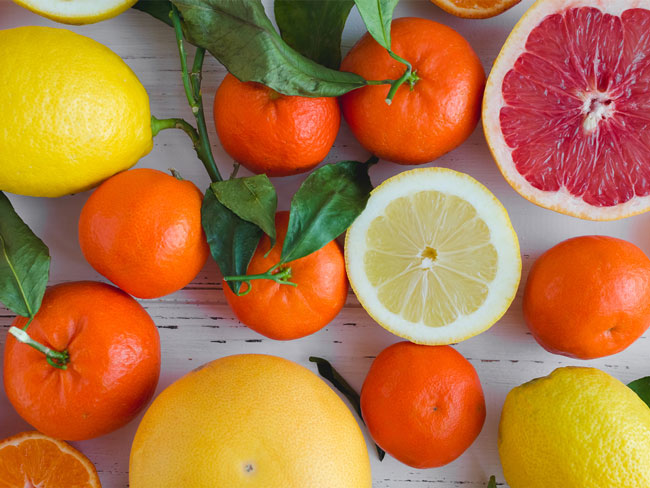
The story goes that La Befana encountered the Three Wise Men on their way to visit baby Jesus, but she was too busy doing chores to join them. Later, she regretted her choice and set out to find the holy infant herself, carrying gifts. Although she couldn’t find the stable, she left treats like mandarins and oranges, along with toys and candy, for well-behaved children she encountered along the way.
Portugal: Bananas and Wine for Christmas Eve
The Portuguese town of Braga has its own unique Christmas Eve tradition involving bananas. The celebration known as Bananeiro supposedly started in the 1970s when Manuel Rio, the owner of a banana warehouse, set up a stand to sell Moscatel, a sweet and aromatic Portuguese wine, hoping to attract customers. When people asked for something to settle their stomachs and avoid intoxication, Rio would offer them a banana.
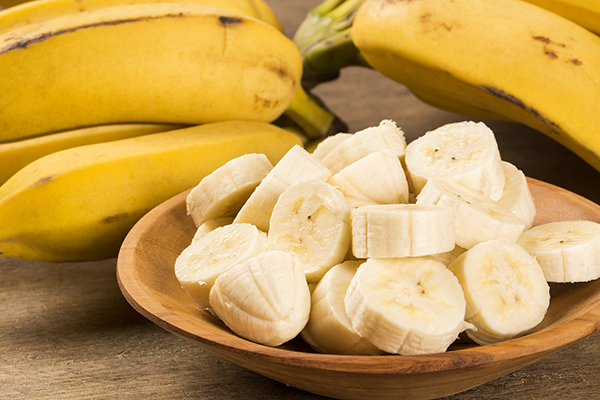
Rio’s son began inviting his friends to the bar for a Christmas toast with bananas and Moscatel, and the tradition continued to grow. Now thousands of people gather on the Ruo de Souto on December 24 to toast the holiday with family and friends at Bananeiro.
The US: Bananas, Apples, and Grapes for Kwanzaa
The festival of Kwanzaa, celebrated mainly in the US, takes its name from the Swahili phrase matunda ya kwanza, meaning “first fruits.” Kwanzaa was created in 1966 by scholar and activist Dr. Maulana Karenga to celebrate African American heritage and culture and was inspired by African harvest celebrations.
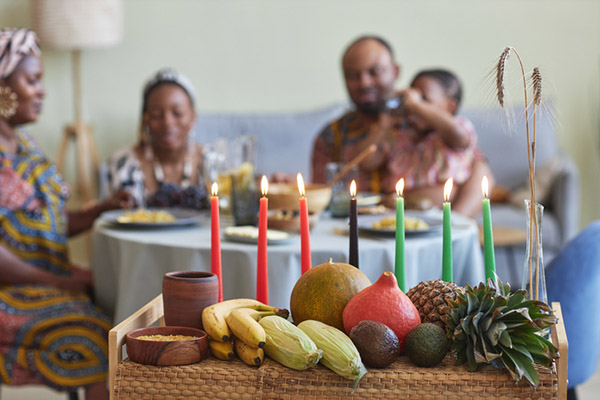
Observations of Kwanzaa typically involve a table decorated with specific symbols. These include a woven mat called a mkeka, which represents tradition and history, and a selection of fruits and vegetables atop the mkeka, to symbolize the rewards of collective work and labor. This display is known as mazao, and often includes bananas, sweet potatoes, yams, and squash, to represent the African diaspora. Other fruits may include grapes to symbolize abundance and good fortune, or apples to represent knowledge and education.
Iran and Beyond: Pomegranates for Yalda Night, New Year’s, and More
Yalda Night is the Persian celebration of the Winter Solstice and dates back to 502 B.C. Yalda symbolizes the victory of light over darkness, marking the turning point where days begin to grow longer. Friends and family gather to share stories and poetry and enjoy traditional foods, including pomegranate and watermelon. Pomegranates originated in modern-day Iran, and have come to symbolize fertility, light, and goodness. Watermelon serves as a reminder of warmth and vitality and is associated with warding off winter cold.
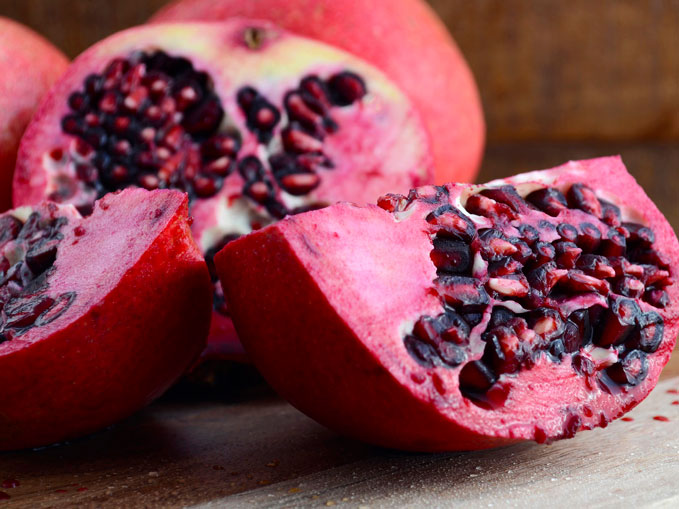
Other cultures feature pomegranates in their New Year’s celebrations. In Greece, the first person to enter the home on New Year’s Day smashes a pomegranate on the front door. The more seeds that scatter, the more good fortune the home is expected to have in the new year. Across Eastern Europe people observe a variation on this custom, throwing pomegranates on the ground in the hopes that breaking them open will bring abundance. In Brazil, legend has it that eating a pomegranate and keeping seven of its seeds in your wallet or purse throughout the year can bring good luck and prosperity.
Spain: Lucky Grapes for New Year’s
The Spanish have a festive and superstitious custom known as Las Doce Uvas de la Suerte or The Twelve Grapes of Luck. On December 31 as the clock strikes midnight, Spaniards eat a grape with each chime—one for each month of the coming year. If you manage to eat all twelve grapes before the clock finishes striking, you should enjoy good luck and prosperity for the whole year. People congregate in squares and main streets of their towns, including in Puerta del Sol in Madrid, to complete the ritual of eating grapes and welcoming the new year.

China and Beyond: Lunar New Year Citrus Brings Peace, Wealth, and More
Fruits are a central part of Lunar New Year celebrations in China and other Asian countries, symbolizing various aspects of good fortune, prosperity, and longevity. Oranges and tangerines are among the most popular, as their color is associated with wealth and prosperity. Pomelos are believed to offer protection, while apples symbolize peace and harmony. Many families display a platter with various fruits in their home. Holiday fruit gift baskets are commonly given as presents, and participants may also place fruit offerings on altars as offerings to their deities or ancestors.
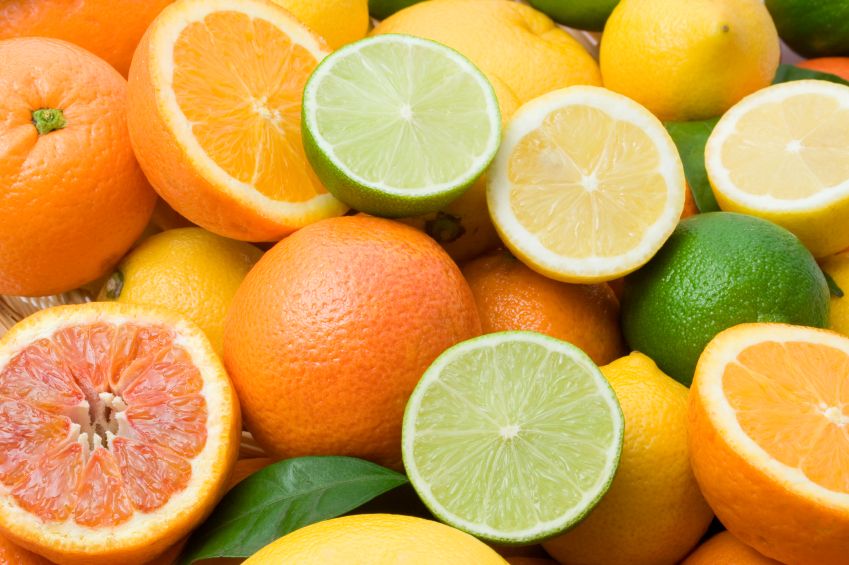
Celebrate the Season with Holiday Fruit Gift Baskets
Though many of these traditions have ancient roots, fresh fruit continues to be a source of great flavor, health benefits, and holiday cheer today. Adopting one of these festive traditions—simply giving out holiday fruit gift baskets—can be a fun way to honor your heritage or simply reconnect with nature’s bounty as you celebrate with coworkers, family, and friends.
Want farm-fresh fruit?
We've got you covered.Recent Articles
Office Potluck Inspiration: Fruit Boards to Wow Your Coworkers
Summer Fruit Recipes to Savor at the Office
Back-to-Work Wellness Tips for a Successful Q4
The 5 Best Fruits for Protein (and How to Enjoy Them at Work)
How to Choose the Right Organic Produce Supplier for Your Office
Subscribe to our Newsletter
"*" indicates required fields

